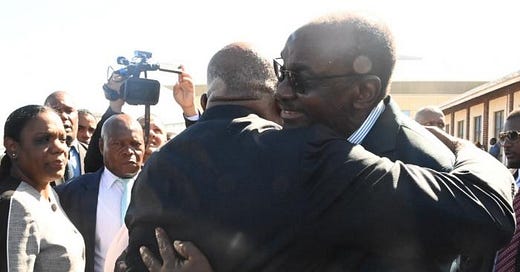The friendship between Zimbabwe and Cuba
The common experience of land reform provoking sanctions
On January 25, 2024, the Vice-President of the Republic of Cuba, Salvador Valdés Mesa, arrived in Zimbabwe for an official visit that extended to January 26. It marked the third occasion in which Valdés Mesa has visited the African nation. He was welcomed by the Vice-President of Zimbabwe, Kembo D.C. Mohadi, who declared to the Cuban delegation, “You are very far from home, but you are at home.”
Mohadi observed that Cuba and Zimbabwe have been friends for many years, which has included Cuban support for African struggles for liberation, and it continues in the present in the form of cooperation in several areas. Of special importance, he noted, is the work carried out by the Cuban medical mission, which in addition to lending medical attention, includes the formation of Zimbabwean health professionals. He declared that “the work of Cuban doctors is very much recognized among us, and the results obtained speak for themselves.”
For his part, Va…



